Ten Stories That Worried My Mother by Winona Kent
I’m excited to welcome Winona Kent to the blog today. I served on the board of Crime Writers of Canada with Winona. She is a great writer and has a super new anthology out. Read on to hear more about it…
TEN STORIES THAT WORRIED MY MOTHER by Winona Kent
Earlier this year I decided to release an anthology of short stories. I had two reasons: the first was that I had a few personal appearances coming up, and I wanted something new to sell. I was halfway through my next novel and I was pretty certain it wasn’t going to be ready in time. The second was that I realized I’m mostly only known for my long fiction…and that I actually do have a background in short story-writing! But, for various reasons, very few people know about that. And I really did want to share those stories with my current readers.
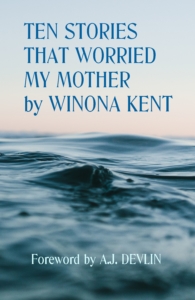
I chose the title Ten Stories That Worried My Mother largely because, well, she constantly worried about me being a writer. That’s a subject for a whole other blog—how to deal with a parent who brought you up not to attract attention to yourself, not to say anything that might reflect badly on you (or her, or the family), and most definitely not to write stories with interesting characters and situations, in case friends and relations might think it was about them.
Interestingly, I once took part in a creative writing workshop where the assignment was to write a story using only animals as characters, and the characters had to be based on us, ie, everyone in the workshop. None of us were able to recognize ourselves. Or each other, for that matter. Which convinced me that unless you use really specific character traits or situations that readily identify who you’re writing about, you’re probably on safe ground.
A few months before my mum died in 2021 (aged 95), I thought I might read one of my more recent stories to her aloud. Her eyesight was failing, and I really wanted to share it with her, especially because it had made the shortlist for the Crime Writers of Canada’s Awards of Excellence for Best Crime Novella. The story was “Salty Dog Blues.”
She listened patiently, but punctuated my narration with predictable Oh dear!‘s and Ohhhh‘s. I loved her dearly and I knew that would be her reaction, but I was determined to convince her (in my late 60’s!) that I really was a decent writer, after all.
When I finished, she said, “It’s very good.” I waited. I knew what was coming next. “But you can’t say those things about the cruise line your sister worked for! What if they come back and cause problems for her?”
I pointed out that the cruise line was called something else, and it didn’t have a current ship that was even remotely like the one in “Salty Dog Blues”, and that yes, I’d used my experiences sailing with my sister (who’d been a Captain’s Secretary) in the story’s details, but my sister hadn’t actually worked for them in a very long time and what, exactly, did she anticipate the problems might be?
She didn’t have an answer for that, of course. But my mother was, by nature, a worrier. And she wasn’t happy unless her thoughts were fueled by apprehension.
And so, of course, the title Ten Stories That Worried My Mother was strategically chosen to make her happy. And I’m certain she’s out there, somewhere—very proud of me—but fretting unnecessarily, and absolutely convinced someone in our family will think badly of her—or me—for writing it!
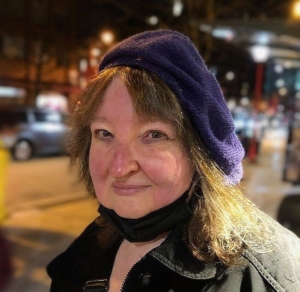 Ten Stories That Worried My Mother (four prize-winners, three mysteries, two previously unpublished works and one where the hero manages to spare-change John Lennon at the premiere of A Hard Day’s Night in 1964), with a foreword by A.J. Devlin, is published on August 22, 2023.
Ten Stories That Worried My Mother (four prize-winners, three mysteries, two previously unpublished works and one where the hero manages to spare-change John Lennon at the premiere of A Hard Day’s Night in 1964), with a foreword by A.J. Devlin, is published on August 22, 2023.
Regional representative, BC/YT, Crime Writers of Canada
Active Member, Sisters in Crime-Canada West
www.winonakent.com



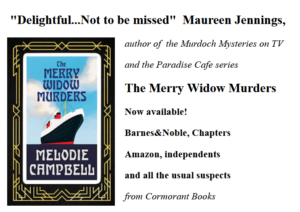
 Called the “Queen of Comedy” by the Toronto Sun, Melodie Campbell was also named the “Canadian literary heir to Donald Westlake” by Ellery Queen Mystery Magazine. Winner of 10 awards, including The Derringer (US) and the Crime Writers of Canada Award of Excellence, she has multiple bestsellers, and was featured in USA Today. Her publications include over 100 comedy credits, 16 novels and 60 short stories, but she’s best known for The Goddaughter mob caper series.
Called the “Queen of Comedy” by the Toronto Sun, Melodie Campbell was also named the “Canadian literary heir to Donald Westlake” by Ellery Queen Mystery Magazine. Winner of 10 awards, including The Derringer (US) and the Crime Writers of Canada Award of Excellence, she has multiple bestsellers, and was featured in USA Today. Her publications include over 100 comedy credits, 16 novels and 60 short stories, but she’s best known for The Goddaughter mob caper series.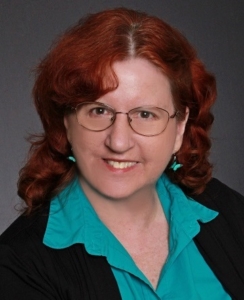
 The new series’ protagonist is a tough-as-nails veteran cop. She is thrown off kilter though, when she moves to Florida to take a job as the chief of police of a small city department. She’s mid-forties, no-nonsense, and thought she had a pretty thick wall around her heart.
The new series’ protagonist is a tough-as-nails veteran cop. She is thrown off kilter though, when she moves to Florida to take a job as the chief of police of a small city department. She’s mid-forties, no-nonsense, and thought she had a pretty thick wall around her heart.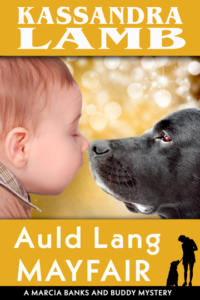 newer one, I have Judith, a mature woman who needs to learn to lighten up some and let people in more readily, and not be so hard on herself when she makes mistakes.
newer one, I have Judith, a mature woman who needs to learn to lighten up some and let people in more readily, and not be so hard on herself when she makes mistakes.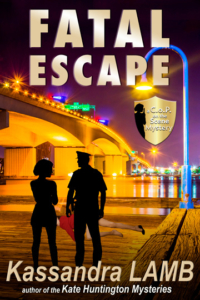 About Fatal Escape: Two months on the job and barely recovered from a serial killer case, Chief of Police Judith Anderson is called out to the scene of what looks like a suicide—or is it? There’s no ID on the woman, and her abandoned car has been partially wiped clean of fingerprints. Judith’s search for answers leads to a human trafficking ring operating in her city…and the realization that she’s up against more than one ruthless foe, perhaps even someone on her own force. Can Judith stop the traffickers and find a killer…before more lives are destroyed?
About Fatal Escape: Two months on the job and barely recovered from a serial killer case, Chief of Police Judith Anderson is called out to the scene of what looks like a suicide—or is it? There’s no ID on the woman, and her abandoned car has been partially wiped clean of fingerprints. Judith’s search for answers leads to a human trafficking ring operating in her city…and the realization that she’s up against more than one ruthless foe, perhaps even someone on her own force. Can Judith stop the traffickers and find a killer…before more lives are destroyed?
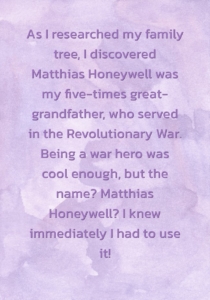 recent transplant to the city. Yes, Emma now lives in Erie. This is bad enough, but Emma has a friend from back home, named Eric. (Do you see where this is going?) Eric is a very minor character in Where the Guilty Hide. He lives back in Emma’s hometown and only appears in phone calls and texts. As I created him, I had no plans to bring him back in future books. But I’m working on the second in the series, and Eric has insisted on becoming a bigger character. So now I have Emma and Eric in Erie.
recent transplant to the city. Yes, Emma now lives in Erie. This is bad enough, but Emma has a friend from back home, named Eric. (Do you see where this is going?) Eric is a very minor character in Where the Guilty Hide. He lives back in Emma’s hometown and only appears in phone calls and texts. As I created him, I had no plans to bring him back in future books. But I’m working on the second in the series, and Eric has insisted on becoming a bigger character. So now I have Emma and Eric in Erie.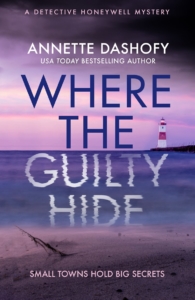 About the Book: On the shore of Lake Erie, Pennsylvania, a body lays half hidden, the waves slowly moving it with the rising tide…
About the Book: On the shore of Lake Erie, Pennsylvania, a body lays half hidden, the waves slowly moving it with the rising tide…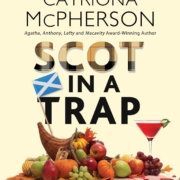
 I was at a two-and-a-half hour Zoom meeting earlier today (the UK Society of Authors’ AGM) and in the montage of the year’s highlights there was a wee tiny clip of another Scottish writer, Damien Barr, talking about how he no longer minds cutting stuff out of his drafts, now he’s published, because he can always return to the cut subject in blogs.
I was at a two-and-a-half hour Zoom meeting earlier today (the UK Society of Authors’ AGM) and in the montage of the year’s highlights there was a wee tiny clip of another Scottish writer, Damien Barr, talking about how he no longer minds cutting stuff out of his drafts, now he’s published, because he can always return to the cut subject in blogs.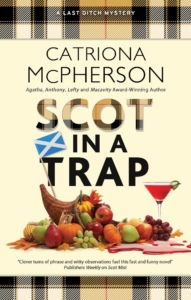 SCOT IN A TRAP
SCOT IN A TRAP